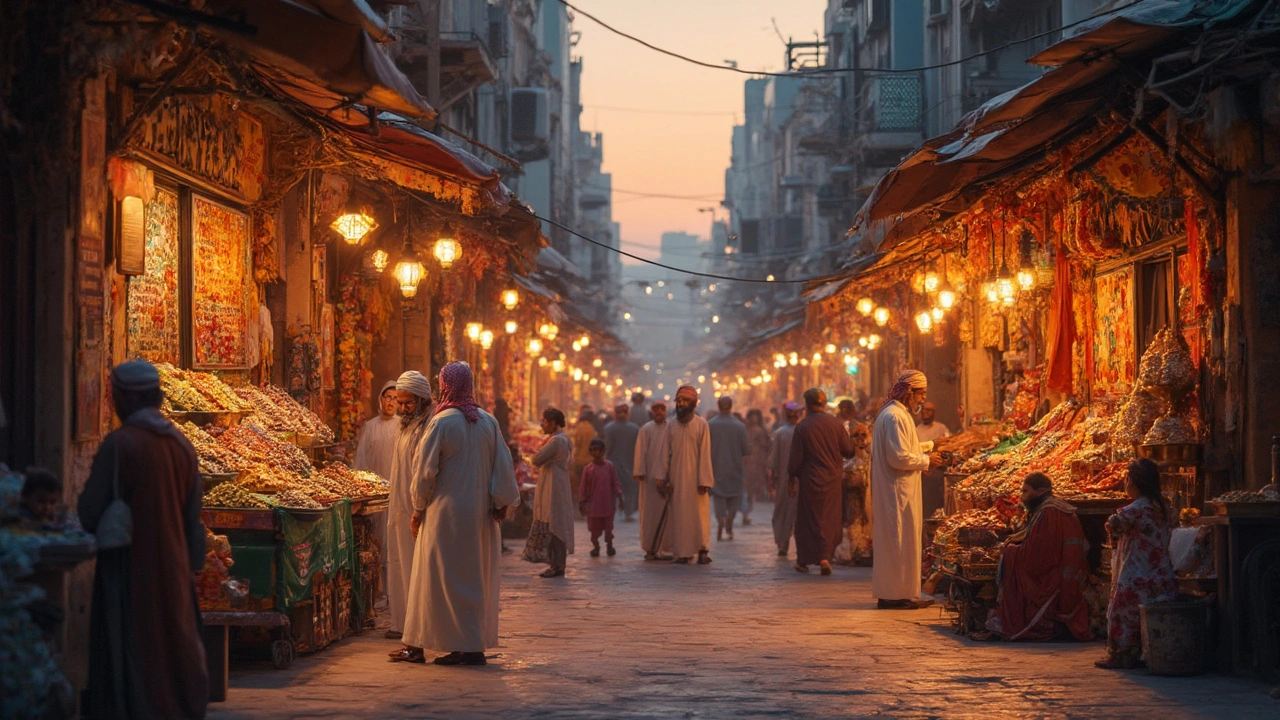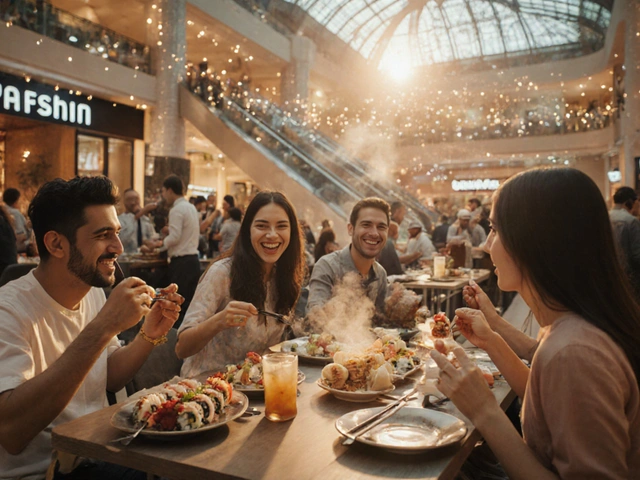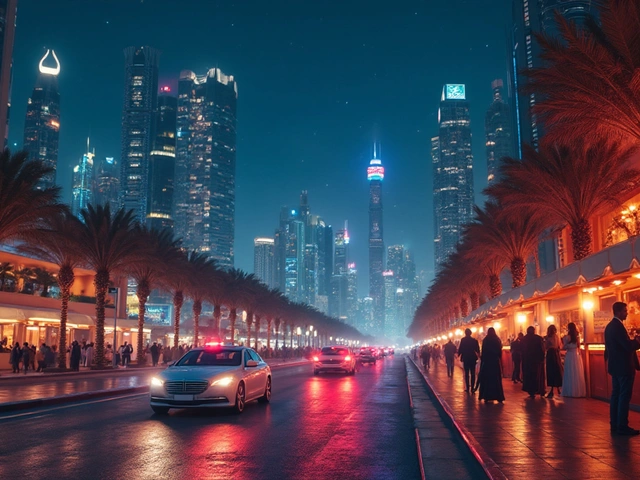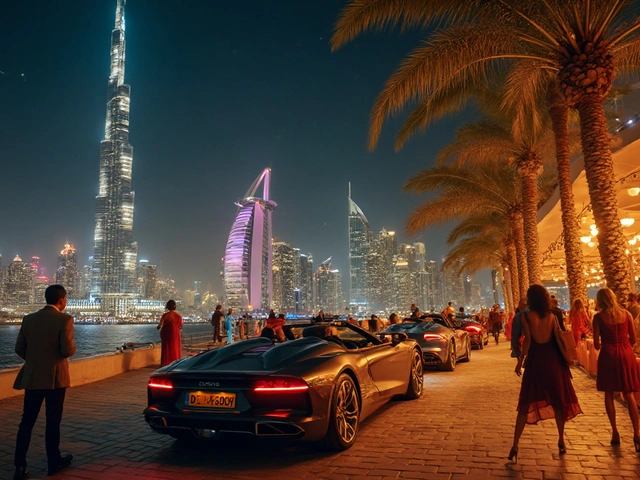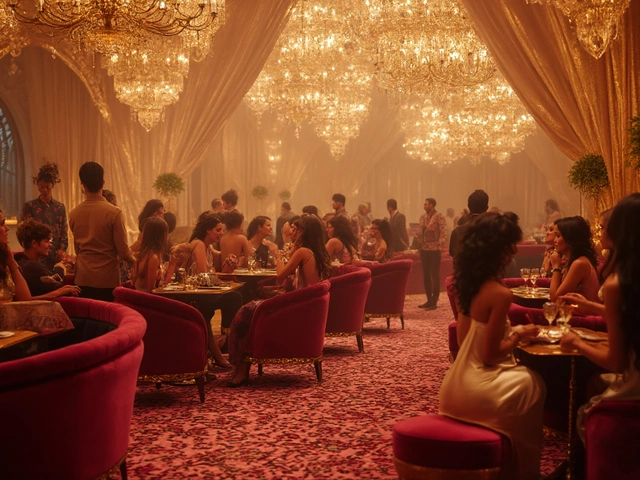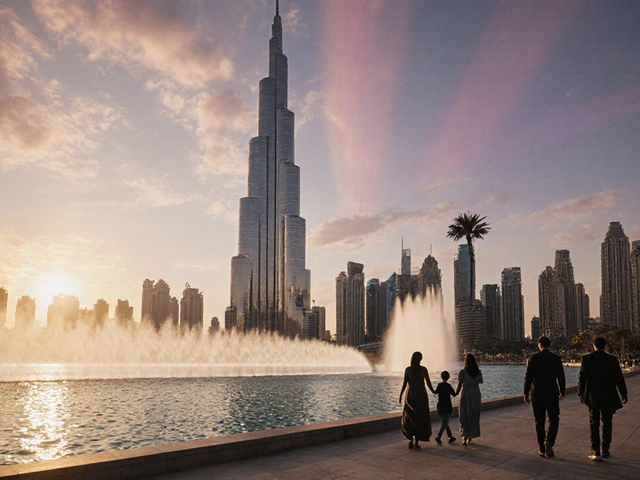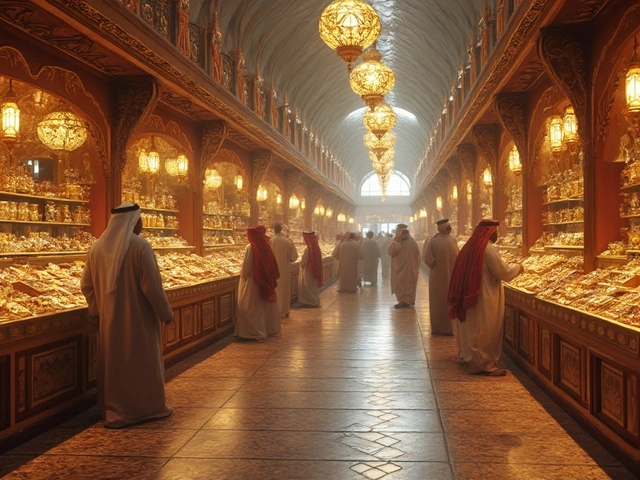If you’ve ever wondered what it really means to soak up the local vibe in Dubai, forget just snapping a photo at Burj Khalifa or doing the classic desert safari. Dubai’s culture isn’t just about big-ticket sites; it’s about daily life, hidden alleys, traditional breakfasts at old-school cafeterias, and weekend strolls through historic souks like Al Fahidi. Many residents—whether born here or not—know that the heart of Dubai beats loudest in these quieter corners.
Sure, you’ll find glitzy malls and world-famous restaurants, but there’s just as much magic in ordering karak tea from a tea shack in Karama or joining the pre-dawn rush for manakish at Al Reef Bakery in Al Wasl. Locals love weekend mornings at Jumeirah Beach, where joggers, families, and fishermen start their day with simple routines that don’t make the guidebooks. Want to join in? Show up early, dress casually, and don’t be shy about striking up a conversation over breakfast—Dubai residents are used to meeting people from all corners of the globe.
- Unpacking Dubai’s Cultural Scene
- Where Locals Go: Hidden Gems and Hotspots
- Traditions and Etiquette in Everyday Life
- Getting Involved: Events, Food, and Experiences
Unpacking Dubai’s Cultural Scene
It’s easy to get distracted by Dubai’s bright lights and skyscrapers, but the everyday cultural experiences are what really set this city apart. If you want to understand Dubai culture—not just what’s advertised in tourist brochures—you’ve got to look at both the past and present.
Dubai started out as a fishing village and trading port, and you can still see traces of this history in places like Al Fahidi Historical Neighbourhood, with its winding alleyways and wind towers. The city’s old Al Shindagha Museum tells the story of pearl diving and the rise of trade, showing how Dubai’s location turned it into a real crossroads of the world.
Now, Dubai is home to over 200 nationalities. Walk through Deira, and you’ll hear Uzbek, Malayalam, Tagalog, and Arabic—sometimes all in one shop. This mix isn’t just a fun fact, it’s everyday life. It shows up in food, in how people dress, even in how they hang out during weekends.
Getting a feel for Dubai means paying attention to its cultural mashups. On Fridays, it’s not rare to see Emirati families headed for brunch in City Walk, Indians gathering for cricket on sandy pitches in Oud Metha, and Filipinos doing karaoke at small JLT cafes. Ramadan, for example, shifts the daily rhythm: cafes fill at iftar, food stalls pop up everywhere, and the whole city slows down during daylight hours to respect fasting. The Dubai Festivals and Retail Establishment keeps the calendar packed with celebrations from Eid to Diwali to Christmas—each one open to anyone who wants to join.
You’ll also find world-class art at Alserkal Avenue and homegrown music acts at The Fridge in Al Quoz. But some of the best cultural finds aren’t on big stages. Consider the majlis, a traditional sitting room where locals host friends and guests; these gatherings are essential for discussing politics, sharing food, and passing on Dubai’s unwritten social rules. If you ever get invited to one, it’s a chance you shouldn’t miss.
Want to get a real sense of what’s going on in Dubai’s cultural scene? Keep an eye on these:
- Dubai culture tip: Head to Global Village between October and April for an outdoor fair of food, crafts, and shows from around the world.
- Check Expo City Dubai for ongoing exhibitions and pop-up markets.
- Look out for the Emirates Airline Festival of Literature every February—one of the region’s biggest.
- Try Al Marmoom Heritage Festival to catch live camel racing and taste traditional Emirati food.
Here’s a handy snapshot of Dubai’s diversity:
| Aspect | Details |
|---|---|
| Nationalities | 200+ represented |
| Official Language | Arabic (but English widely spoken) |
| Main Religious Sites | Jumeirah Mosque, St. Mary’s Catholic Church, Hindu Temple in Bur Dubai |
| Annual Cultural Events | 20+ (including Dubai Shopping Festival, Art Dubai, Sikka Art, Eid, Diwali, Christmas festivals) |
So if you’re living in Dubai or just passing through, don’t stop at the surface. The real cultural buzz is everywhere, if you know where to look and who to ask.
Where Locals Go: Hidden Gems and Hotspots
Most people visiting Dubai stick to the big names, but talk to anyone who actually lives here and you’ll hear a totally different list. The keyword for a real local experience? Skip the branded chains, and look for places where the crowd is a mix of Emiratis, expats, and longtime residents. That’s where the actual Dubai culture shows up.
For a chill, authentic morning, walk down the lanes of Al Satwa. This neighbourhood’s bustling bakeries and shawarma stalls serve some of the best street food in town—no glitz, just good eats. If you’re into café-hopping, check out the Jumeirah area’s independent coffee spots like The Sum of Us, which roasts its own beans and attracts a local crowd. And don’t sleep on Al Fahidi Historical Neighbourhood. Its winding lanes, courtyard homes, and the Arabian Tea House are worlds away from the skyscrapers, giving you a taste of old Dubai.
Gold Souk and Spice Souk in Deira aren’t just tourist stops; residents actually shop there for gold jewellery, saffron, or Persian dried limes at better prices than most supermarkets. Just remember to haggle—it’s expected, and sometimes you’ll get a deal you wouldn’t find online.
Want something totally different? Hit up Bu Qtair, a legendary Emirati seafood shack in Umm Suqeim. There’s usually a line, but nobody minds waiting—fresh grilled fish and spicy curry are 100% worth it. You pay by weight, and locals love sharing huge seafood platters with friends. Try typing "Bu Qtair Dubai" into Google Maps and you'll see it almost always packed after sunset.
For a taste of local fashion, the Ripe Market at Police Academy Park is where Dubai’s creative scene pops up every weekend from October to April. You’ll find handmade clothing stalls, food trucks, and homegrown brands you won’t spot at Dubai Mall. It’s kid-friendly, dog-friendly, and you can chat directly with designers over fresh juice.
| Hidden Gem | What to Try | Neighbourhood |
|---|---|---|
| Al Reef Bakery | Manakish, Cheese Rolls | Al Wasl |
| Bu Qtair | Grilled Fish, Shrimp Curry | Umm Suqeim |
| Arabian Tea House | Saffron Cake, Arabic Coffee | Al Fahidi |
| The Sum of Us | Specialty Coffee, Fresh Pastries | Trade Centre |
| Ripe Market | Local Fashion & Food Trucks | Umm Suqeim/Police Academy Park |
"If you want to feel the pulse of Dubai, ditch the mall and find where families and friends gather to eat and relax—you’ll blend in and maybe even make a new friend," says Khaled Al Ameri, UAE storyteller and media personality.
The best tip? Head to these spots early, especially during weekends. Parking is easiest before noon, and you’ll get the freshest food. And don’t forget, most of these hotspots, even the busiest ones, expect casual dress—jeans, sneakers, and a friendly attitude will get you far.
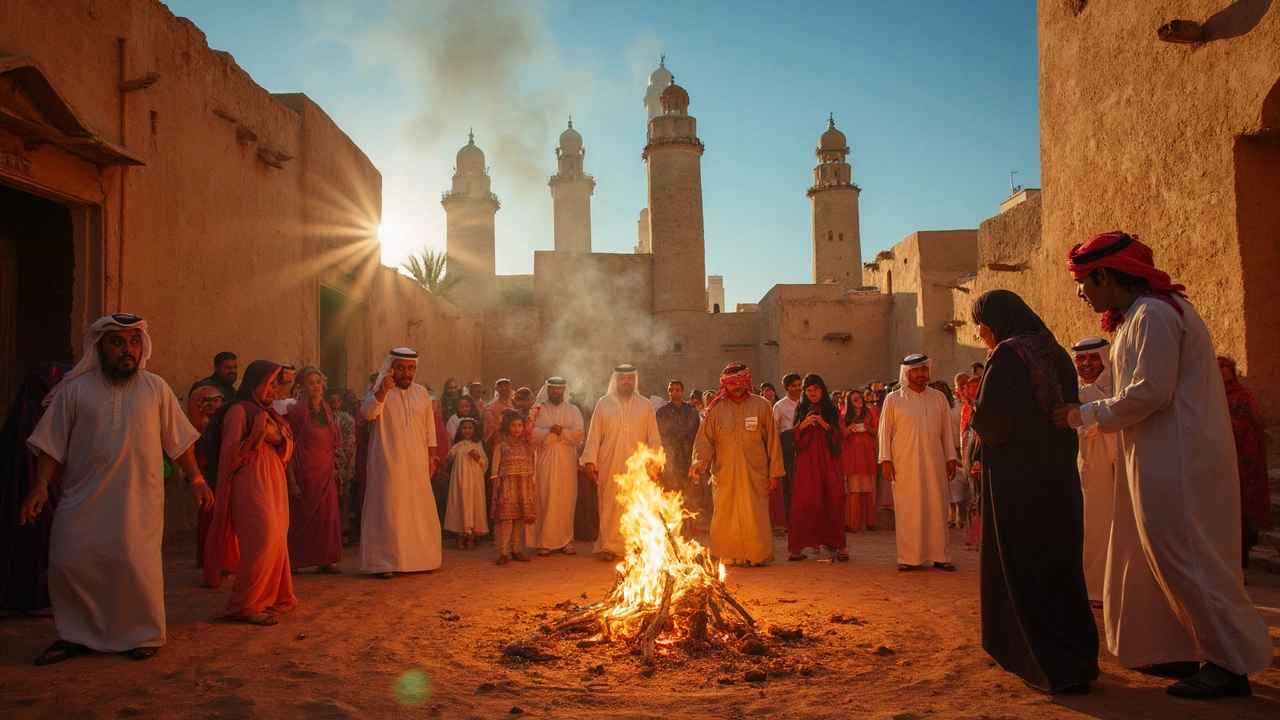
Traditions and Etiquette in Everyday Life
Day-to-day life in Dubai runs on a rhythm of respect and routine. Whether you’re grabbing groceries at Carrefour or chatting over coffee at Tim Hortons, knowing a bit about Dubai culture makes everything smoother. One thing that stands out here: greetings matter. A simple "Salam Alaikum" goes a long way, and folks respond with "Wa Alaikum Salam"—it’s considered polite, even at work or in casual settings.
Dressing modestly is expected, especially in older parts of the city like Deira or when visiting mosques. Shoulders and knees covered—that’s the basic rule for both men and women. In malls or restaurants, the dress code is a little more relaxed, but try not to stand out for the wrong reasons. Public displays of affection? Keep it minimal. Holding hands is alright for married couples, but kissing or hugging in public can land you in trouble.
- When you enter someone’s home, take off your shoes at the door—this is standard Emirati custom.
- Always use your right hand when giving or receiving something, even cash or business cards.
- During Ramadan, don’t eat, drink, or smoke in public during daylight hours—even water. Many cafes put up screens, but be careful outside.
- Friday is the weekly holy day, so most public offices and banks open late or close early. Plan ahead if you need official work done.
Small talk matters too. Residents don’t usually rush conversation, even in business. People often ask about your family, your health, or how you like Dubai before getting down to business. It’s more than just being nice—it’s how trust gets built here.
| Key Etiquette | What To Do | Where It Matters Most |
|---|---|---|
| Greeting | Say "Salam Alaikum" and use right hand for handshakes | Workplaces, homes, shops |
| Dress Code | Cover shoulders and knees; modest dress | Mosques, older neighborhoods |
| Public Behavior | No kissing or intimate touching; no swearing | Malls, parks, beaches |
| Respect During Ramadan | No eating/drinking in public before sunset | Everywhere in Dubai |
| Taking Photos | Ask permission before photos of people, especially women | Public spaces, traditional souks |
It’s these basic habits—small, daily acts of respect—that make living and working in Dubai feel a lot more connected. Ignore them, and you’ll stick out fast; follow them, and you’ll find doors (and conversations) open wide.
Getting Involved: Events, Food, and Experiences
When it comes to living like a local in Dubai, it’s all about joining in. The city has way more than flashy parties or luxury dinners—there’s real community life here, packed with things you can jump into, all year round. For starters, the Dubai culture scene is alive with events big and small. Art Dubai turns Madinat Jumeirah into a hotspot for modern creativity every March, pulling in international artists but also plenty of local talent. If you're more into sports, Dubai Fitness Challenge every November gets people of all ages outside for citywide workouts, from yoga at Kite Beach to group runs at Zabeel Park.
Now, food—this is where Dubai truly shines. You’ve probably heard people rave about shawarma, but there’s so much more beyond that. Emirati breakfast platters loaded with balaleet (sweet vermicelli and eggs) and chebab pancakes are standard at spots like Arabian Tea House in Al Fahidi. For dinner, hit Ravi Restaurant in Satwa or Al Ustad Special Kebab in Al Mankhool—places that locals swear by for hearty, no-fuss meals.
It’s not just restaurants. Try getting involved in the weekly Ramadan iftar tents, especially around Jumeirah Mosque or Al Barsha. You’ll break bread with strangers, try traditional dates and soups, and get a real sense of what community means here. And don’t miss street food at Global Village during the winter—every corner offers new tastes from dozens of countries, but don’t skip the Emirati booths for things like luqaimat (sweet dumplings).
Here are some tips for getting the most out of Dubai’s local experiences:
- Check out Visit Dubai’s official site for up-to-date event calendars and free activities in your area.
- Join foodie tours like Frying Pan Adventures for an insider’s look at traditional markets and hidden restaurants.
- Keep Fridays and Saturdays open—these are Dubai’s main weekend days, so markets and neighborhoods are buzzing.
- Get to big events early. Expo City Dubai can get crowded fast, and parking goes quick at places like the Dubai Food Festival.
If you like hard data, check this out:
| Event/Festival | Average Attendance | Season |
|---|---|---|
| Art Dubai | ~30,000 visitors | March |
| Global Village | Over 7 million | October – April |
| Dubai Food Festival | 200,000+ | February – March |
| Dubai Fitness Challenge | 1 million participants | November |
There’s no one right way to get involved in Dubai, but locals will tell you to mix things up: join a cooking class in Alserkal Avenue, sign up for a dhow cruise during National Day, or just wander around Deira’s night markets. Take the chance to try something unfamiliar—you never know what you’ll fall in love with.

